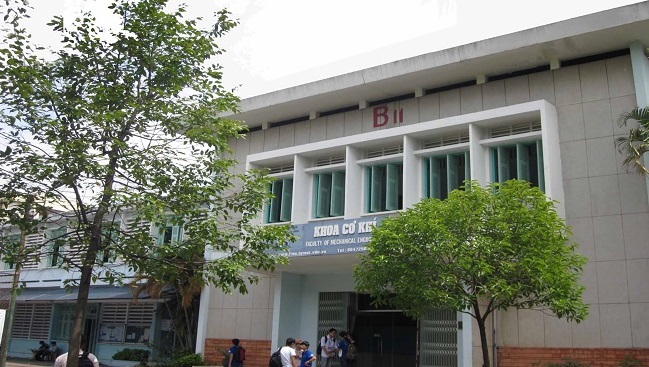Faculty of Mechanical Engineering has been one of the oldest and accompanied the development history of Bach Khoa University, Ho Chi Minh city. The former name of Bach Khoa university was National School of Technology’s engineering, which was established in 1956 with the purpose of providing the first 4-year technology engineering programmes in the southern Vietnam. Since 1975, the faculty of Mechanical Engineering was founded by merging the National School of Technology’s engineering with Bach Khoa Vocational school and has been continuously developing ever since. The faculty of mechanical engineering has been a center located in southern Vietnam where high-quality engineers are trained and qualified. The staff and students of the faculty of mechanical engineering have always been outstanding in both training and scientific researching to fulfil developing demands of many industries and the society. The faculty of mechanical engineering offers students a wide range of programmes which are both up – to – date and practical in order to equip students with necessary skills and knowledge as well as appropriate attitude to become experts and leaders in the near future. Moreover, the faculty has done an excellent job in basic and applied researching, accomplishing the mission of industrializing and modernizing our country, taking part in developing science and technology in general.Researching and technology transferring activities of the faculty mainly focuses on aspects such as: product design and development; industrial equipment and machines, food processing equipment, textile and garment, plastic, heat and refrigeration, mechatronics – robotics, automatics, supplier industry, …

Faculty of Mechanical Engineering has six main majors in undergraduate program with a total target of 650 students per year. They are Mechanical Engineering (Manufacturing engineering; Construction machinery and Handling equipment engineering); Mechatronics Engineering, Industrial Systems Engineering (Industrial Systems Engineering; Logistics Management and Engineering), Textile engineering (Fibre and Textile Technology; Printing – Dyeing Technology); Garment Engineering (Garment Technology; Garment – fashion field Technology), Thermal Engineering (Heat and Refrigeration Technology).
04 specialties offered for master degrees are Mechanics Engineering (including Manufacturing Engineering; Workpiece Forming Engineering; Construction Machinery and Handling Equipment Engineering); Mechatronics Engineering; Heat and Refrigeration Engineering and Industrial Systems Engineering with a total target of 120 students per year.
02 specialties offered for doctor degrees are Mechanics Engineering (including Manufacturing Engineering; Materials Forming Processes; Continuous Conveying and Elevating Machinery Engineering; Mechatronics Engineering) and Thermal Engineering
Besides, there are also other special programmes:
– PFIEV (Programme de Formation d’Ingénieurs d’Excellence au Vietnam) Program: Mechatronics (20 students/year), was accredited by CTI in 2011
– Education program for the gifted and talented: Mechanical Engineering (30 students/year), Mechatronics Engineering (30 students/year), only freshmen are eligible.
– Articulation programme in Mechatronics with UTS (University of Technology Sydney), Australia (20 students/year)
– Doctor degree articulation programme with Griffith University in Mechanical Engineering is called 911.
The faculty has a total number of teaching staff of 106: 78 are responsible for theoretical lessons, 16 are in charge of practical and experimental lessons, a professor, 10 associate professors, 42 doctors, … Besides, the faculty also employs experts in training activities, short-term researches and researchers taking part in projects and researching programmes sponsored by the governments and industrial firms.
In order to fulfil the purpose of teaching and scientific researching, the faculty has been equipped a number of laboratories, including: lab of measuring device, CAD/CAM Lab, Computer- integrated manufacturing Lab, C1 Mechanical workshop, computer lab, library, … together with other labs of departments.
The faculty has adopted the CDIO approach for all the mechanical engineering courses since 2009 and for all the courses of the faculty since 2013. In 2011, manufacturing engineering courses were qualified by the AUN-QA. Mechatronics courses of the PFIEV were also verified by CTI (French) of the European credit standard EURO – ACE in the same year
The faculty has been applying the 132 credits engineering programme for all courses since 2019 according to the ABET verification criteria in 2019-2020 as well as the CDIO method approach.
Dean of Faculty
Assoc. Prof. Dr. Bui Trong Hieu